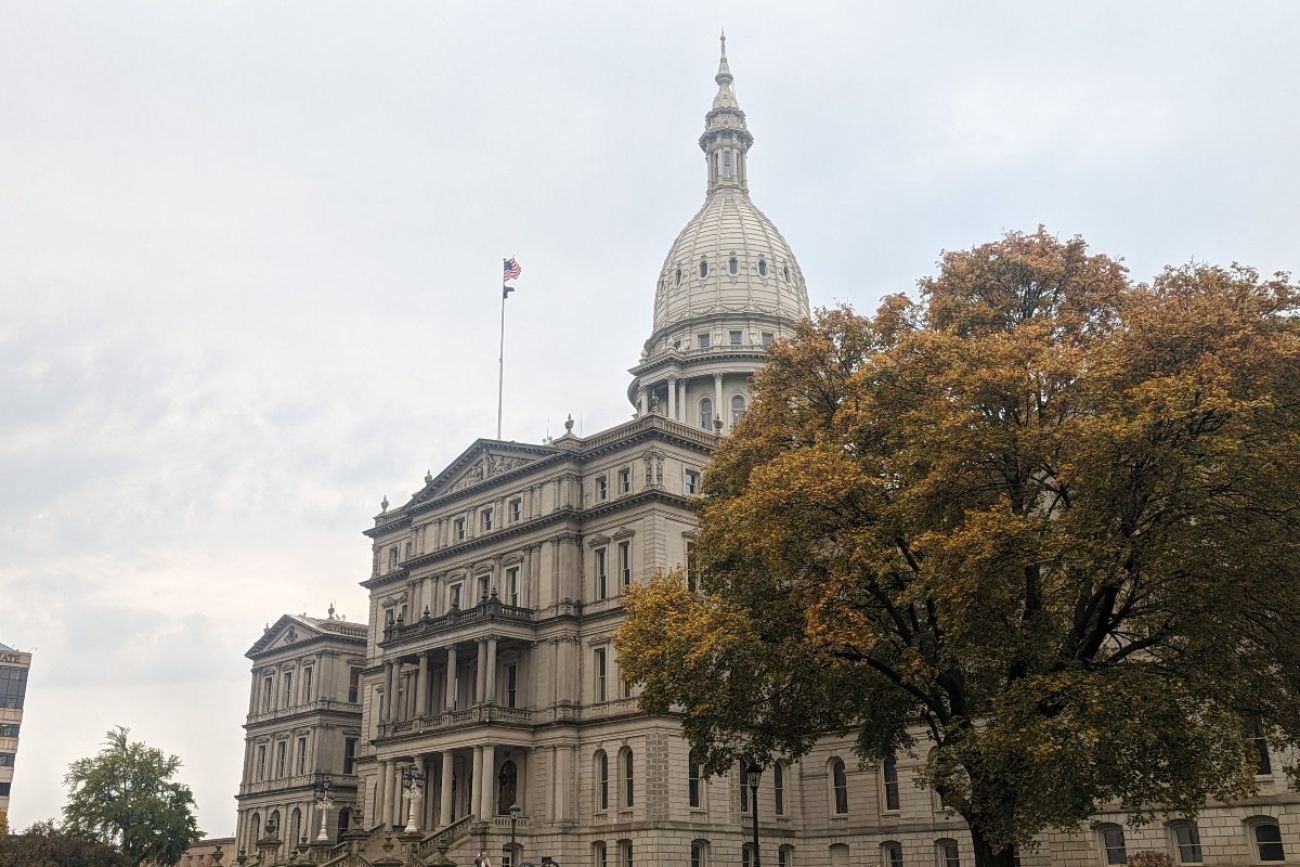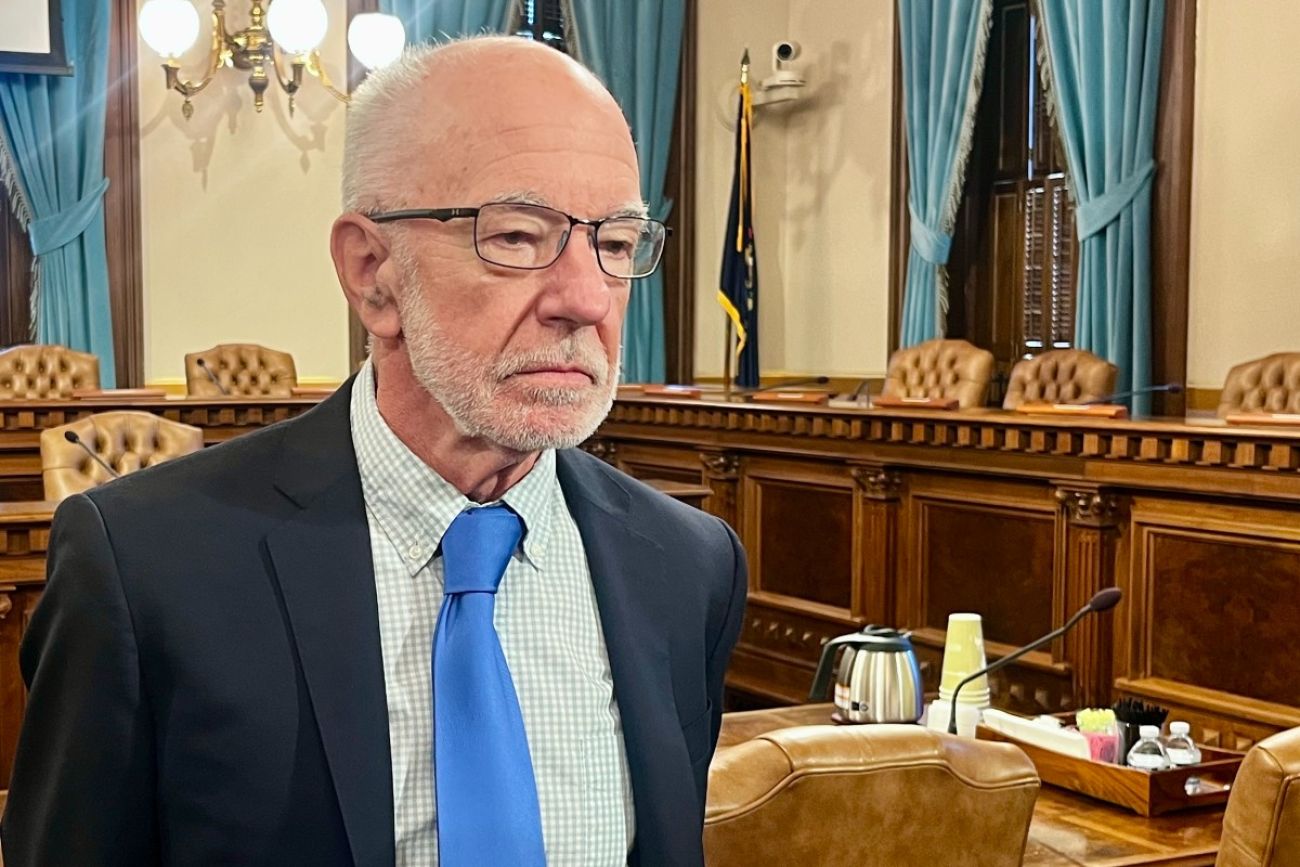Panel: Public can’t know cost, details of ‘critical’ security project at Michigan Capitol

- The Michigan Capitol Commission unanimously approves what it called a “critical infrastructure” security improvement
- Members would not tell reporters what the project is or how much it would cost, citing concerns over its efficacy if made public
- Now, the Michigan Press Association is reviewing whether the commission is violating any state laws in its choice to keep quiet
LANSING — Members of the Michigan State Capitol Commission on Monday unanimously approved a “critical infrastructure” security upgrade at the building but would not say what the project is — or how much it will cost taxpayers.
“The recommendation was of the type that, if it were publicly known, it would be rendered useless as a security measure,” William Kandler, commission chair, told reporters after the vote.
Transparency advocates are now questioning the legality of the decision. The Michigan Constitution specifies that “all financial records … and other reports of public money shall be public records open to inspection.”
The six-member Capitol Commission, appointed by legislative leaders and the governor, is responsible for managing and maintaining the Michigan Capitol and its grounds.

The commission publicly approved major security upgrades in 2021 and 2023, banning openly carried guns at the Capitol and installing metal detectors to scan for weapons at public entrances.
But this time around, the commission cannot share the scope of the new security project, when the approved upgrades will begin or the overall cost of the project, Kandler repeatedly told reporters.
He said only that the changes would impact the building’s interior and “take some time to implement.”
He also suggested that House and Senate leaders — as well as Gov. Gretchen Whitmer’s office — are aware of the pending changes and are “the people who most likely would be protected by what we’re talking about.”
The offices of Senate Majority Leader Winnie Brinks, D-Grand Rapids, House Speaker Matt Hall, R-Richland Township, and the governor did not immediately respond to requests for comment.
In declining to provide any public information about the security project, Kandler said he was acting in line with advice from the commission’s legal counsel, the Department of Attorney General, which also did not immediately respond to a Bridge request for comment.
RELATED:
- Michigan Capitol to scan for guns, boost security by September
- Michigan Capitol to enforce gun ban with artificial intelligence
- Michigan Capitol Commission bans guns, but exempts lawmakers from rule
Asked who at the department was advising them on this matter, Kandler declined to name names.
“Problem is, you start chipping away at information, pretty soon all the information is out there,” Kandler said, noting that while he was glad reporters were “being suspicious” of how taxpayer funds were being utilized, “we have to be responsible.”
But that is “the point” of Michigan transparency laws, said Lisa McGraw, public affairs manager with the Michigan Press Association. “We want to chip away at all the information that involves taxpayer dollars being spent,” she told Bridge Michigan.
McGraw said she was already consulting with an MPA attorney on whether the decision to withhold this information was legal.
“They must, at some point — at the very least, I would say — state how much they’re spending and who the vendor is,” added McGraw, whose association promotes press freedom through public policy work.
Because the Capitol is accessible to all Michigan residents, and Michigan residents are technically footing the bill for the security upgrades, McGraw argued the public “should have some idea” as to what those upgrades are.
Nonetheless, Kandler continued to defend the need for secrecy, saying that the undisclosed security project was “always on the commission’s radar” but that recent attacks on politicians, including Democratic Pennsylvania Gov. Josh Shapiro, made the commission “realize we have to be prepared to deal with things like that.”
The Capitol Commission has drawn scrutiny over past decisions, including its ban on concealed firearms on Capitol grounds, something pro-gun advocates — including some lawmakers — argued was a Second Amendment violation.
The commission first banned openly carrying firearms in the Capitol in 2021, following an April 2020 protest against COVID-19 rules that saw militia members bring weapons onto balconies overlooking legislative chambers.
In the years since, the panel has voted to further implement security measures in an effort to crack down on guns in the building, installing things like artificial intelligence surveillance and “pass-through” detectors.
The concealed carry ban included carveouts allowing certain individuals to carry in the building, including properly permitted lawmakers, active state and federal law enforcement officers, security staff and private security details.
See what new members are saying about why they donated to Bridge Michigan:
- “In order for this information to be accurate and unbiased it must be underwritten by its readers, not by special interests.” - Larry S.
- “Not many other media sources report on the topics Bridge does.” - Susan B.
- “Your journalism is outstanding and rare these days.” - Mark S.
If you want to ensure the future of nonpartisan, nonprofit Michigan journalism, please become a member today. You, too, will be asked why you donated and maybe we'll feature your quote next time!




